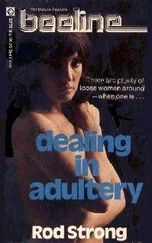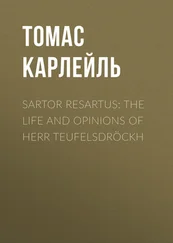Vladimir Nabokov - Strong opinions
Здесь есть возможность читать онлайн «Vladimir Nabokov - Strong opinions» весь текст электронной книги совершенно бесплатно (целиком полную версию без сокращений). В некоторых случаях можно слушать аудио, скачать через торрент в формате fb2 и присутствует краткое содержание. Город: New York, Год выпуска: 1990, Издательство: First Vintage International Edition, Жанр: Классическая проза, на английском языке. Описание произведения, (предисловие) а так же отзывы посетителей доступны на портале библиотеки ЛибКат.
- Название:Strong opinions
- Автор:
- Издательство:First Vintage International Edition
- Жанр:
- Год:1990
- Город:New York
- ISBN:нет данных
- Рейтинг книги:4 / 5. Голосов: 1
-
Избранное:Добавить в избранное
- Отзывы:
-
Ваша оценка:
- 80
- 1
- 2
- 3
- 4
- 5
Strong opinions: краткое содержание, описание и аннотация
Предлагаем к чтению аннотацию, описание, краткое содержание или предисловие (зависит от того, что написал сам автор книги «Strong opinions»). Если вы не нашли необходимую информацию о книге — напишите в комментариях, мы постараемся отыскать её.
Strong opinions — читать онлайн бесплатно полную книгу (весь текст) целиком
Ниже представлен текст книги, разбитый по страницам. Система сохранения места последней прочитанной страницы, позволяет с удобством читать онлайн бесплатно книгу «Strong opinions», без необходимости каждый раз заново искать на чём Вы остановились. Поставьте закладку, и сможете в любой момент перейти на страницу, на которой закончили чтение.
Интервал:
Закладка:
So much for my «most serious failure».
All that now remains to be examined is Mr. Wilson's concern for reputations — Pushkin's reputation as a linguist and the reputations of SainteBeuve and others as writers.
With an intensity of feeling that he shares with Russian monolinguists who have debated the subject, Mr. Wilson scolds me for underrating Pushkin's knowledge of English and «quite disregarding the evidence». I supply the evidence, not Mr. Wilson, not Sidorov, and not even Pushkin's own father (a cocky old party who maintained that his son used to speak fluent Spanish, let alone English). Had Mr. Wilson carefully consulted my notes to One: xxxvni: 9, he would have convinced himself that I prove with absolute certainty that neither in 1821, nor 1833, nor 1836, was Pushkin able to understand simple English phrases. My demonstration remains unassailable, and it is this evidence that Mr. Wilson disregards while referring me to stale generalities or to an idiotic anecdote about the Raevski girls' giving Pushkin lessons in English in a Crimean bower. Mr. Wilson knows nothing about the question. He is not even aware that Pushkin got the style of his «Byronic» tales from Pichot and Zhukovski, or that Pushkin's copying out extracts from foreign writers means nothing. Mr. Wilson, too, may have copied extracts, and we see the results. He complains I do not want to admit that Pushkin's competence in languages was considerable, but I can only reply that Mr. Wilson's notion ot such competence and my notion of it are completely dissimilar. I realize, of course, that my friend has a vested interest in the matter, but I can assure him that although Pushkin spoke excellent eighteenth-century French, he had only a gentleman's smattering of other foreign languages.
Finally — Mr. Wilson is horrified by my «instinct to take digs at great reputations». Well, it cannot be helped; Mr. Wilson must accept my instinct, and wait for the next crash. I refuse to be guided and controlled by a communion of established views and academic traditions, as he wants me to be. What right has he to prevent me from finding mediocre and overrated people like Balzac, Dostoevski, SainteBeuve, or Stendhal, that pet of all those who like their French plain? How much has Mr. Wilson enjoyed Mme. de StaeTs novels? Has he ever studied Balzac's absurdities and Stendhal's cliches? Has he examined the melodramatic muddle and phony mysticism of Dostoevski? Can he really venerate that archvulgarian, SainteBeuve? And why should I be forbidden to consider that Chaykovski's hideous and insulting libretto is not saved by a music whose cloying banalities have pursued me ever since I was a curlyhaired boy in a velvet box? If 1 am allowed to display my very special and very subjective admiration for Pushkin, Browning, Krylov, Chateaubriand, Griboedov, Senancour, Kuchelbccker, Keats, Hodascvich, to name only a few of those I praise in my notes, I should be also allowed to bolster and circumscribe that praise by pointing out to the reader my favorite bogeys and shams in the hall of false fame.
In his rejoinder to my letter of August 26, 1965, in The New York Review, Mr. Wilson says that on rereading his article he felt it sounded «more damaging» than he had meant it to he. His article, entirely consisting, as I have shown, of quibbles and blunders, can be damaging only to his own reputation — and that is the last look I shall ever take at the dismal scene.
Completed on January 20, 1966, and published in February of that year in Encounter. One or two forced peeps did come after that «last look». The essay was reprinted in Nabokov's Congeries, Viking, New York, 1968.
LOLITA AND MR. GIRODIAS
From time to time, in the course of the 1960s, there have appeared, over the signature of Mr. Girodias or that of some friend of his, retrospective notes pertaining to the publication of Lolita by The Olympia Press and to various phases of our «strained relations». Those frivolous reminiscences invariably contained factual errors, which I generally took the trouble to point out in brief rejoinders; whereupon, as I detected with satisfaction, certain undulatory motions of retreat were performed by our flexible memoirist. An especially ambitious article, with especially serious misstatements, has now been published by him twice — in Barney Rosset's Evergreen Review (No. 37, September 1965) under the title «Lolita, Nabokov, and I», and in his own anthology (The Olympia Reader, Grove Press, New York, 1965) under the less elegant title of «A Sad, Ungraceful History of Lolita». Since I have religiously preserved all my correspondence with Mr. Girodias, I am able,I trust, to induce a final retraction on his part.
Two clauses from a document in my possession entitled «Memorandum of Agreement» («made this sixth day of June nineteen hundred and fifty five between Mr. Vladimir Nabokov, Cornell University, Ithaca, N. Y., and Olympia Press, ft, nie de Nesle, Paris») might do very well as a motto for the present occasion. Here they are in strophic form for the reader's convenience:
8
In the event of the Publishers
Going bankrupt
Or failing to make accountings and payments As herein specified,
Then in either event the present agreement Becomes automatically null and void
And the rights herein granted Revert to the Author.
9
The Publishers shall render statement
Of the number of copies sold On the 30th June and 31st December
Of each year Within one month from these dates
Respectively
And shall make payment to the Author At the time of such rendering of account.
The eighth stave, with its opening lines foretelling so plainly what was to happen to Mr. Girodias on December 14, 1964, and that beautiful, eloquent, almost sapphically modulated last verse («Revert to the Author»), is of great importance for the understanding of what Mr. Girodias calls «our enigmatic conflict». It will be also noted that while devoting a lot of space to the many «disappointments» that my attitude toward him caused him, he never mentions in the course of his article the perfectly obvious reason for a writer's resenting his association with a publisher — namely, the fact of Mr. Girodias' failing repeatedly, with a kind of maniacal persistence, to live up to clause 9 of our agreement. By stressing effects and concealing causes he gives a comic slant to his account of our relations, making it seem that during ten years I kept extravagantly fuming at a puzzled benefactor.
Lolita was finished at the beginning of 1954, in Ithaca, New York. My first attempts to have it published in the U. S. proved disheartening and irritating. On August 6 of that year, from Taos, New Mexico, 1 wrote to Madame Ergaz, of the Bureau Litteraire Clairouin. Paris, about my troubles. She had arranged the publication in French of some of my Russian and English books; I now asked her to find somebody in Europe who would publish Lolita in the original English. She replied that she thought she could arrange it. A month later, however, upon my return to Ithaca (where I taught Russian Literature at Cornell) I wrote to her saying I had changed my mind. New hopes had arisen for publication in America. They petered out, and next spring I got in touch with Madame Ergaz again, writing her (Feb. 16) that Sylvia Beach «might perhaps be interested if she still publishes». This was not followed up. By April 17 Madame Ergaz had received my typescript. On April 26, 1955, a fatidic date, she said she had found a possible publisher. On May 13 she named that person. It was thus that Maurice Girodias entered my files.
Mr. Girodias in his article overemphasizes the obscurity I languished in before 1955 as well as his part in helping me to emerge from it. On the other hand, I shall be strictly truthful when I say that before Madame Ergaz mentioned his name, I was totally ignorant of his existence, or that of his enterprise. He was recommended to me as the founder of The Olympia Press, which «had recently published, among other things, Htstotre d'U» (a novel 1 had heard praised by competent judges) and as the former director of the «Editions du Chene» which had «produced books admirable from the artistic point of view». He wanted Lolita not only because it was well written but because (as Mme. Ergaz informed me on May 13, 1955) «he thought that it might lead to a change in social attitudes toward the kind of love described in it». It was a pious although obviously ridiculous thought, but high-minded platitudes are often mouthed by enthusiastic businessmen and nobody bothers to disenchant them.
Читать дальшеИнтервал:
Закладка:
Похожие книги на «Strong opinions»
Представляем Вашему вниманию похожие книги на «Strong opinions» списком для выбора. Мы отобрали схожую по названию и смыслу литературу в надежде предоставить читателям больше вариантов отыскать новые, интересные, ещё непрочитанные произведения.
Обсуждение, отзывы о книге «Strong opinions» и просто собственные мнения читателей. Оставьте ваши комментарии, напишите, что Вы думаете о произведении, его смысле или главных героях. Укажите что конкретно понравилось, а что нет, и почему Вы так считаете.










